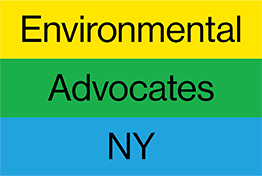Groups Top Off 2012 Green Priorities with Bills to Protect Kids from Toxic Chemicals, Grow Environmental Fund
Two New Environmental Super Bills Named for 2012
ALBANY, NY (04/17/2012)–A coalition of New York’s leading environmental groups today named two additional “Super Bills” to their annual list of policy priorities. The new additions are the Child Safe Products Act, which would protect children from toxic chemicals, and the Environmental Protection Fund Enhancement Act, which would grow New York’s primary funding source for conservation programs. Identified as legislative priorities for the State Legislature by the environmental community, the Super Bills are designed to bolster economic development while addressing New York’s highest profile environmental challenges, including expanding the use of solar energy, cutting the pollution that is changing our climate, and protecting the state’s waters and communities from gas drilling by means of “fracking,” by closing a loophole that exempts the oil and gas industry from responsibly treating drilling waste.
“Just in time for Earth Day, the environmental community’s growing slate of Super Bills provides the State Legislature with an easy to follow roadmap to scoring green points with New Yorkers,” said David Gahl, Deputy Director, Environmental Advocates NY. “Because whether you care about conservation, fracking, clean energy, climate change, or children’s health and safety, there’s a Super Bill for everyone.”
“The state legislature is currently weighing a host of bills that can help New York make significant environmental and economic strides forward,” said Richard Schrader, New York Legislative Director at the Natural Resources Defense Council. “From creating thousands of jobs in expanded solar power production, to reducing climate change pollution, preserving open spaces and better protecting residents from proposed fracking–New York has an opportunity to establish itself as a national leader on a variety of fronts.”
The 2012 green Super Bills include:
NEW: Child Safe Products Act (A.3141-A – Sweeney) would protect New York’s children from toxic chemicals by better regulating the use of chemicals in children’s products. The legislation would create an infrastructure to categorize chemicals of concern, prioritize based on the likelihood of exposure, and require disclosure by product manufacturers as to whether children’s products contain priority chemicals. Priority chemicals are those considered the most dangerous by scientists. The bill would also phase out children’s products made with priority chemicals starting January 1, 2016.
“The Child Safe Products Act is an excellent addition to the diverse set of Super Bills this year,” said Kathy Curtis, Executive Director of Clean and Healthy New York, and co-coordinator of the JustGreen Partnership. “Getting children’s product makers to disclose and ultimately end use of toxic chemicals is good for our children’s health, and the environment.”
NEW: Environmental Protection Fund Enhancement Act (S.5403-A -Grisanti / A.7137-A -Latimer) would increase resources allocated to the state’s Environmental Protection Fund (EPF) by phasing in unclaimed deposits collected by the state through the Returnable Beverage Container Law, the state’s most successful recycling program, over four years. The EPF support projects statewide, which protect our clean water, local farms, parks, and zoos and provide funding for waterfront redevelopment and recycling programs-while creating jobs and boosting our economy.
“The EPF Enhancement Act would begin to restore New York’s commitment to protecting the state’s precious natural resources, while at the same time generating economic activity,” said Neil Woodworth, executive director of the Adirondack Mountain Club. “Since its inception, EPF has created more than 350,000 jobs across a broad spectrum of businesses. The EPF is an economic development strategy that works.”
Solar Industry Development & Jobs Act (A.9149 – Englebright) would create thousands of new solar jobs and jumpstart investment in New York’s growing solar energy industry by requiring state utilities and energy service companies to supply an increasing percentage of their electricity from solar, ultimately resulting in 5000 MW on the grid by 2026-enough to power more than 500,000 homes and reduce as much carbon pollution as taking nearly three million cars off the road.
Global Warming Pollution Cap (A.5346 – Sweeney / S.2742-B – Avella*) would require that climate-altering pollution from all sources is cut by 80 percent by the year 2050. These are the reductions in greenhouse gas emissions that scientists say will help us avert the worst impacts of climate change. *These bills will be amended to match.
Hazardous Waste Loophole (A.7013 – Sweeney / S.4616 – Avella) would end special exemptions that allow the gas industry to circumvent requirements for hazardous waste disposal. This bill would update state law so that all waste resulting from gas drilling that meets the definition of hazardous waste be treated as such and subject to all regulations related to its generation, transportation, treatment, storage, and disposal. Thanks to leadership of Assembly Speaker Sheldon Silver and Environmental Conservation Committee Chair Robert Sweeney, the Assembly acted to close the loophole by passing this Super Bill on February 13th by wide margins.
“With this list, the environmental community has set a clear agenda for Albany,” said Marcia Bystryn, president of the New York League of Conservation Voters. “We look forward to working with lawmakers in both houses and both political parties to achieve these goals, and to make New York an environmental leader among the states.”
“The Super Bills are critical to protecting New York’s environment, and provide benefits to all New Yorkers,” said Adrienne Esposito, Executive Director, Citizens Campaign for the Environment. “Citizens Campaign for the Environment urges the legislature to act on this important suite of bills this legislative session.”
The Super Bills will serve as the centerpiece of the environmental community’s policy agenda at the annual Earth Day Lobby Day, slated for April 25, 2012.
The Super Bills are selected each year by the Green Panel, which includes representatives of: more than a dozen environmental organizations from across the state. Lawmakers receive bonus points for votes in support of the Super Bills in EPL/Environmental Advocates’ annual Voters’ Guide, the only scorecard that grades legislators according to their votes on bills that would hurt or protect New York’s air, land, and water.

